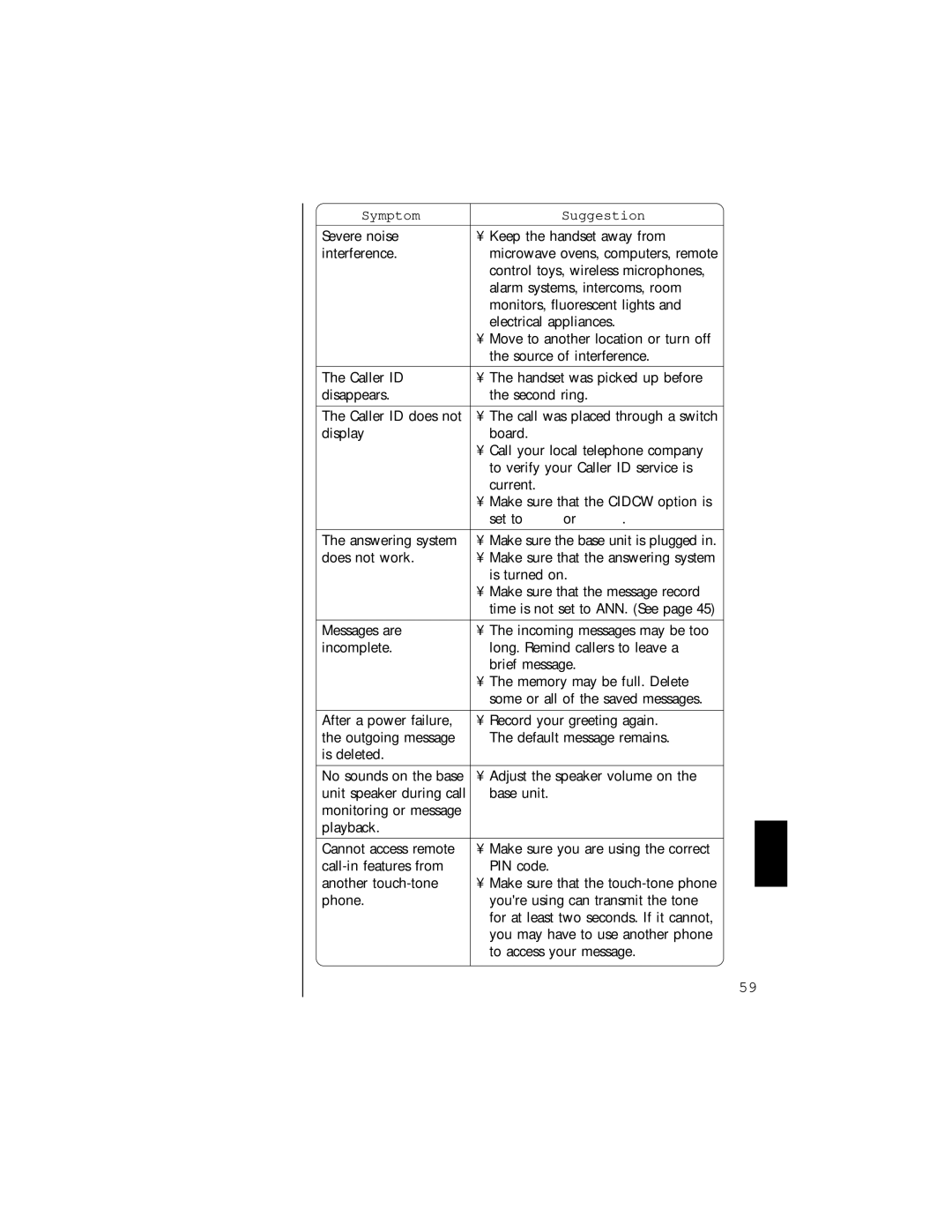
Symptom | Suggestion |
Severe noise | • Keep the handset away from |
interference. | microwave ovens, computers, remote |
| control toys, wireless microphones, |
| alarm systems, intercoms, room |
| monitors, fluorescent lights and |
| electrical appliances. |
| • Move to another location or turn off |
| the source of interference. |
|
|
The Caller ID | • The handset was picked up before |
disappears. | the second ring. |
|
|
The Caller ID does not | • The call was placed through a switch |
display | board. |
| • Call your local telephone company |
| to verify your Caller ID service is |
| current. |
| • Make sure that the CIDCW option is |
| set to “On” or “Opt”. |
|
|
The answering system | • Make sure the base unit is plugged in. |
does not work. | • Make sure that the answering system |
| is turned on. |
| • Make sure that the message record |
| time is not set to ANN. (See page 45) |
|
|
Messages are | • The incoming messages may be too |
incomplete. | long. Remind callers to leave a |
| brief message. |
| • The memory may be full. Delete |
| some or all of the saved messages. |
|
|
After a power failure, | • Record your greeting again. |
the outgoing message | The default message remains. |
is deleted. |
|
|
|
No sounds on the base | • Adjust the speaker volume on the |
unit speaker during call | base unit. |
monitoring or message |
|
playback. |
|
|
|
Cannot access remote | • Make sure you are using the correct |
PIN code. | |
another | • Make sure that the |
phone. | you're using can transmit the tone |
| for at least two seconds. If it cannot, |
| you may have to use another phone |
| to access your message. |
|
|
59
